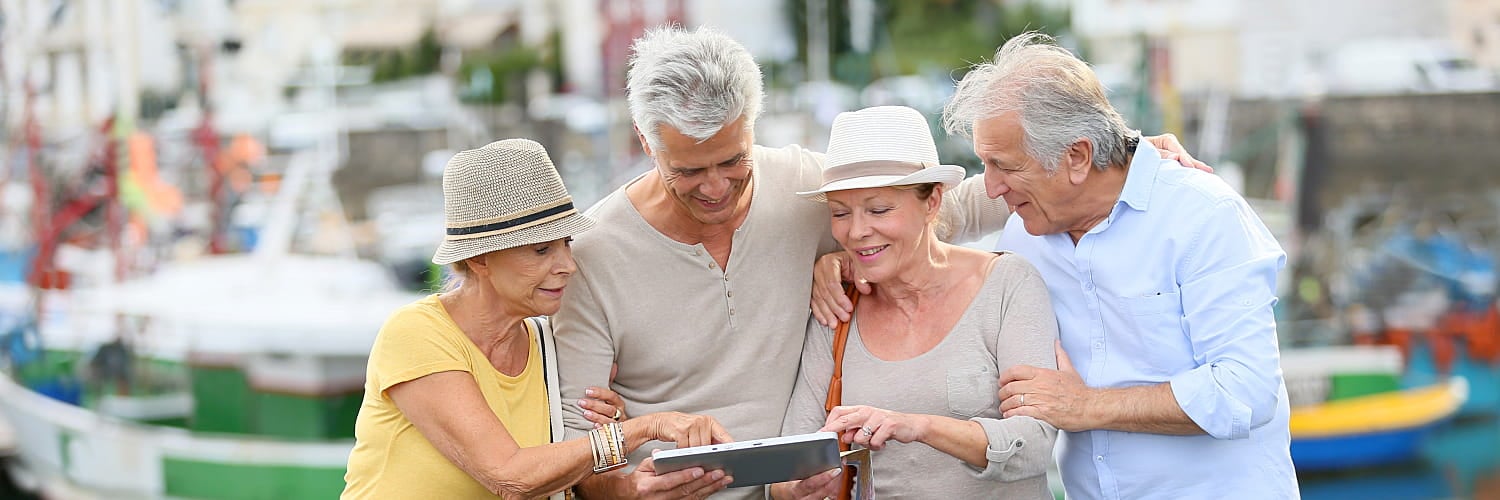One of the great pleasures of retirement is having plenty of time to travel. The most enjoyable vacation is by far a safe vacation, which means it's worthwhile for seniors to travel smart. Follow these five senior travel tips to have the time of your life safely.
1. Consider Travel Insurance
Having adequate insurance for a trip can save money — not to mention save your bacon in case of an emergency. Travel insurance not only helps reimburse you in case you get sick or injured before your planned vacation, but it can also help pay for medical expenses, an emergency evacuation, or a trip interruption if something happens to you while you're away.
There are four types of travel insurance: trip cancellation, baggage and personal effect, emergency medical assistance, and accidental death. Finding a policy that covers all of the potential pitfalls of your vacation can cost as little as 5% to 10% of the total cost of your trip — and, once it's in place, you can keep your focus on having a great time.
2. Take It Easy
Senior travel is just as exciting as trips you took when you were younger, but it can be easy to forget that you're not a kid anymore. Rather than loading your itinerary with nonstop events, make sure you build some downtime into your vacation. This might entail joining a group tour that naturally builds in some rest time, such as when you are on the bus to the next destination. Organized tours also relieve you of having to plan the entire trip.
You may also consider spending more money for your comfort. A nonstop flight may be a bit more expensive, but it puts less wear and tear on both you and your nerves. Similarly, paying for extra check-in privileges at the airport can keep you from feeling frazzled and give you more comfortable options as you wait for your flight.
3. Take Care With Your Medications
Although you may want to consolidate your packing as much as possible, it's smart to travel with your medications in their original packaging with the labels intact. This is true for both prescription and over-the-counter medications. Not only will this make it easier to get through customs if you're traveling abroad, but it also keeps vital dosage information close by.
If you do take prescription medications, you may also want to consult with your health care provider before you leave to ask about any potential foods or other issues that could interact with your prescription. If you have to take your medications at a specific time each day, your doctor can help you determine how to stay on track in another time zone.
Finally, make sure you always travel with your medications in your carry-on rather than in a checked bag. If your checked suitcase ends up at a different airport than you do, you'll want to be sure that you can still take your necessary prescriptions when you need them.
4. Make Sure Your Vaccinations Are Up to Date
If you are traveling out of the country, you may need to schedule some vaccinations as required by the destination country. The Centers for Disease Control and Prevention can help you determine which travel vaccinations are required.
5. Wash Your Hands
Thorough hand-washing is one of the best ways to protect against illness. Make sure you spend 40 to 60 seconds washing your hands with soap. Scrub all of your hand's surfaces, including between your fingers. Doing this after every visit to the restroom and prior to every meal or snack will help keep you healthy during your trip — and when you get home.
Be Safe and Have Fun
Retirement globe-trotting is much more enjoyable when you can count on feeling great throughout the trip. Travel insurance coverage, smart itineraries with built-in downtime, care with your medications and the proper health protections can all ensure that your vacation is safe, fun and unforgettable.


 Emily Guy Birken
Emily Guy Birken










